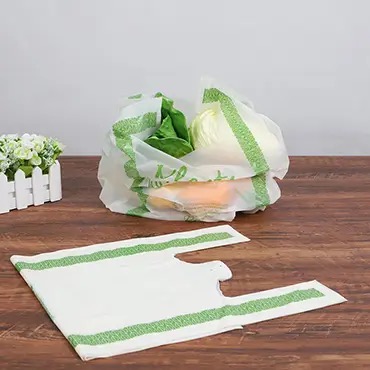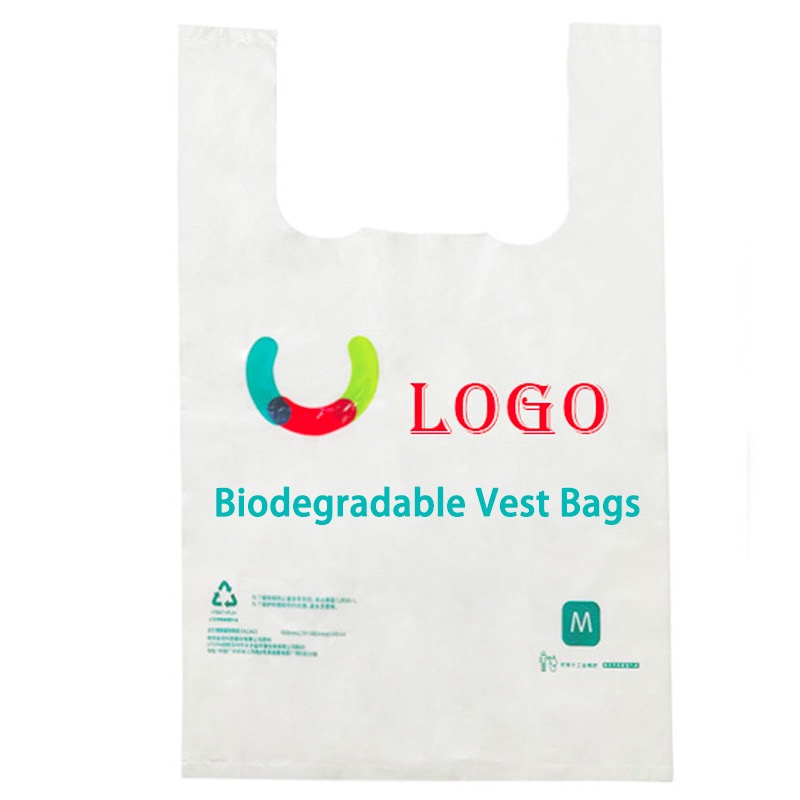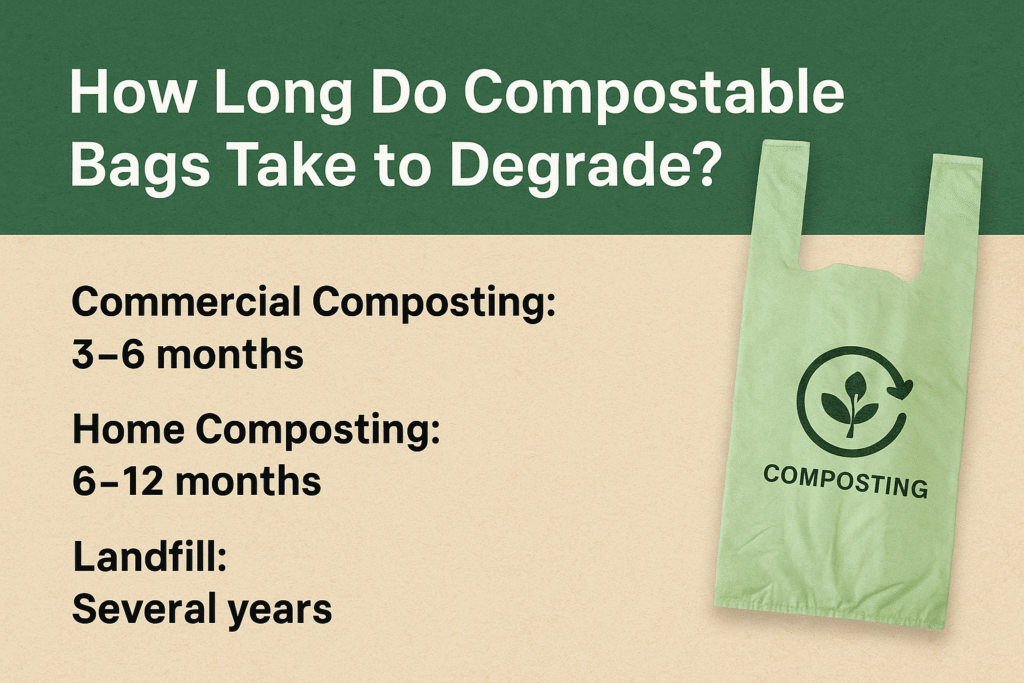As more businesses and consumers turn to sustainable packaging, compostable bags have emerged as a popular eco-friendly alternative to traditional plastic. But a common question remains: How long do compostable bags actually take to degrade? In this guide, we’ll break it down by material, environment, and storage factors to help you understand the full picture.
What Are Compostable Bags Made Of?

Compostable bags are typically made from plant-based materials such as:
- PLA (Polylactic Acid) – derived from corn starch or sugarcane.
- PBAT (Polybutylene Adipate Terephthalate) – a biodegradable fossil-based polymer.
- Starch Blends – often made from potato or tapioca starch mixed with biodegradable polyesters.
These materials are designed to break down completely into water, CO₂, and organic matter in composting conditions.
Degradation Time by Composting Environment
| Composting Environment | Estimated Breakdown Time |
|---|---|
| Industrial Composting (high heat, managed moisture) | 90 to 180 days |
| Home Composting (lower temperatures, less control) | 6 to 12 months |
| Landfill or Natural Environment | May not degrade effectively |
Note: Compostable bags require specific conditions to break down. In a landfill, where oxygen and microbial activity are limited, even compostable bags can persist for years.
Key Factors That Affect Degradation Speed
Several variables can influence how fast compostable bags degrade:
- Temperature – Higher temperatures accelerate microbial activity.
- Moisture – Humidity is crucial for composting.
- Oxygen – Aerobic (oxygen-rich) environments help break down organic materials.
- Thickness of the Bag – Thicker materials take longer to decompose.
- Material Composition – Different biopolymers break down at different rates.
Certifications Matter

Look for bags certified by organizations like:
- TÜV Austria (OK Compost HOME or INDUSTRIAL)
- BPI (Biodegradable Products Institute)
- EN 13432 or ASTM D6400
These certifications confirm that a product meets specific compostability standards and will fully degrade under the right conditions.

How to Dispose of Compostable Bags Properly
To ensure your compostable bags degrade as intended:
- Use them for organic waste only (not recyclables or general trash).
- Dispose of them in a composting facility or home compost bin.
- Avoid landfills, where decomposition is slow and produces methane.
If composting isn’t available locally, you might consider working with a commercial composter or choosing certified home compostable bags that can degrade in your backyard pile.
FAQs About Compostable Bags & Decomposition
Q: Are compostable bags the same as biodegradable bags?
A: No. All compostable bags are biodegradable, but not all biodegradable bags are compostable. Compostable means they break down into non-toxic materials in specific conditions.
Q: Can compostable bags go in regular trash bins?
A: They can, but it’s not ideal. In landfills, they won’t degrade efficiently due to the lack of oxygen and microorganisms.
Q: Do compostable bags leave any residue?
A: Certified compostable bags break down completely without leaving harmful residues.

Final Thoughts
Compostable bags typically degrade in 90 to 180 days in industrial composting conditions, and 6 to 12 months at home. However, proper disposal and composting infrastructure are key to realizing their environmental benefits. Businesses and eco-conscious consumers should choose certified compostable packaging and promote responsible disposal.

